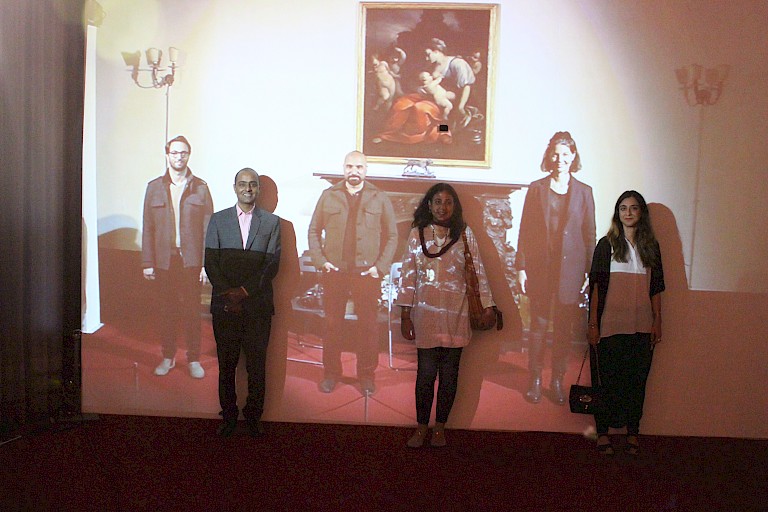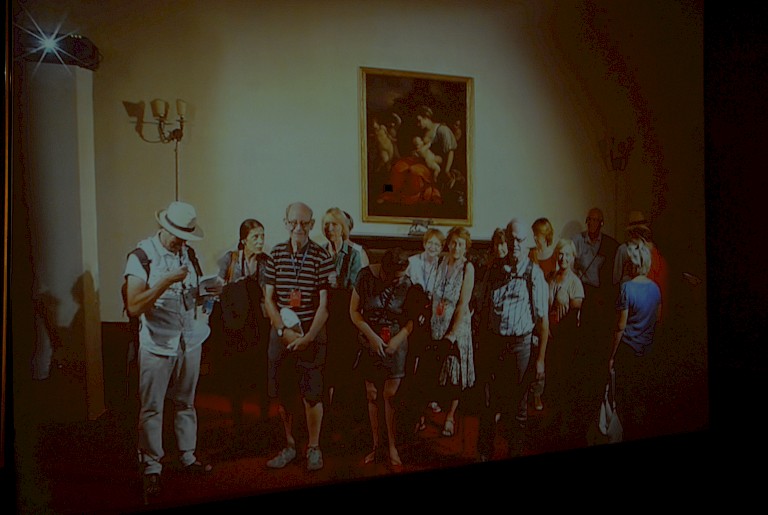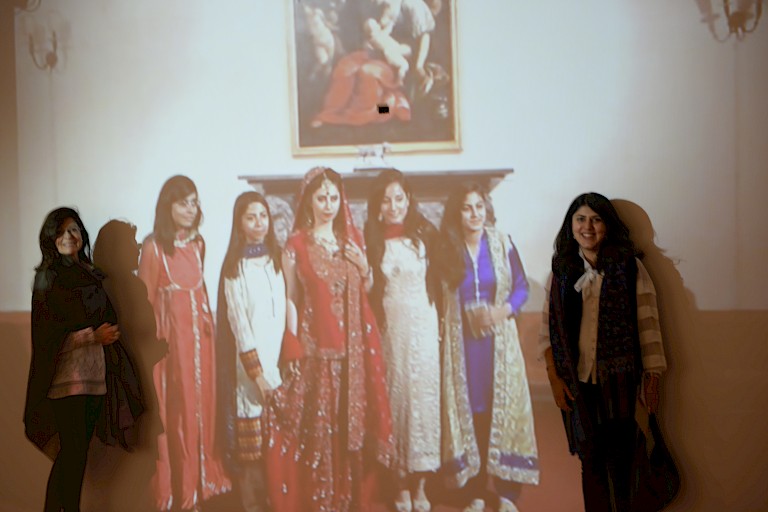



For many from Venice it was interesting to see a part of the world they’re mostly ignorant of, and the collapse of the distance helped them open up to the idea of Pakistan. In Lahore, the reactions were incredibly varied: from people who were happy to be able to present a true picture of themselves (as opposed to ones promoted by the media world-wide, and usually in the times of disasters or international trauma). It also made them happy that interactions meant so many people were actually curious about their country, traditions and lifestyles. Both sides were surprised at the ease of interactions and the similar experiences they didn’t know they already shared.
For many in Lahore it was also the first introduction to contemporary conceptual art. Many were curious about the contents of Rana’s temporary structure, including some who thought it might be a temporary zoo inside. The result was long queues of curious people and many repeat visitors, for whom it became a fantastic way to visit a place, and speak to people they thought they’d never have the chance to. The work also stood to bring the world closer via technology to a country under a lot of internet censorship (in 2015, YouTube, Imgur and Reddit were banned by the Pakistani Government). It wasn’t something Rana was attempting to address, but a by-product of a carefully planned technological extravaganza, that also made locals see technology anew, almost in the same way as they saw art.
The exhibition in Lahore continued for a period of five months where it witnessed a number of conversations and connections between people of varying classes, nationalities (as the Venice Biennale sees a host of international visitors of all kinds) that would normally not have happened. In interviews conducted by Rana after the dismantling of the work, many responders were sad at the closing of this connection but it is clear the impact of these conversations is continuous, and will hopefully create change in many lives.
The work created a live video link from Karachi's Liberty Market to the venue of Rana's two-person exhibition at the Venice Biennale. The work brought people from all walks of life from Lahore closer to Venice, and the people visiting the biennale, collapsing time and space across distances to create shared experiences between people across two continents
The project is part of Rana's series Transpositions, which revolves around time and space and expanding or collapsing them through art and technology. The series was exhibited at Venice Biennale, as part of an exhibition 'My East is Your West' with Indian artist Shilpa Gupta. This work was commissioned by the New Delhi based Gujral Foundation and funded by them with the Lahore Biennale Foundation.
All copyright belongs to Shanghai Academy of Fine Arts, Shanghai University.



